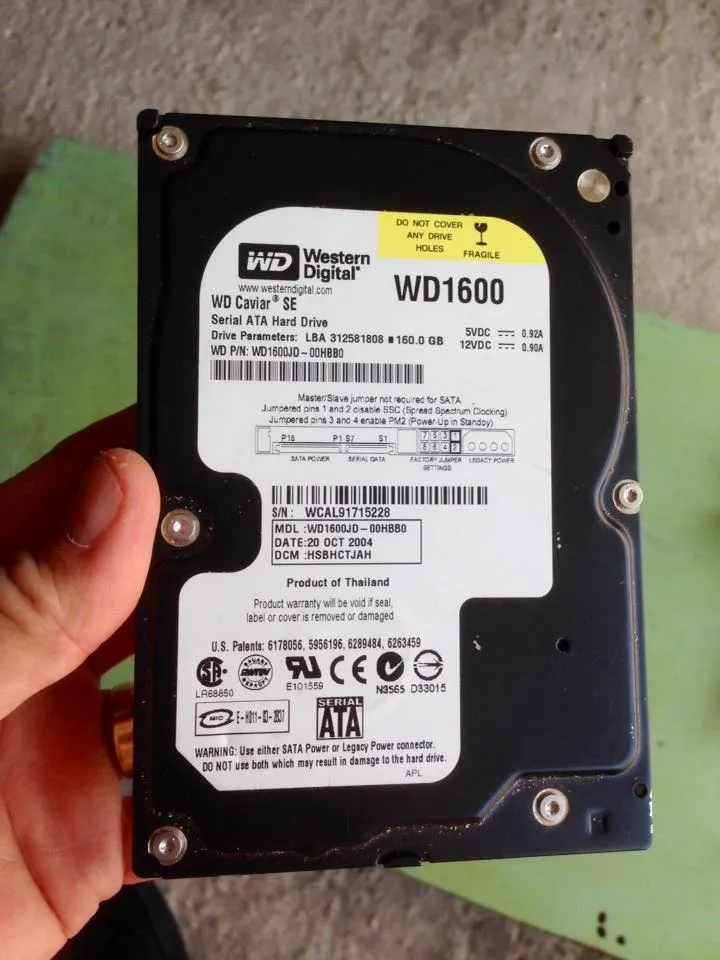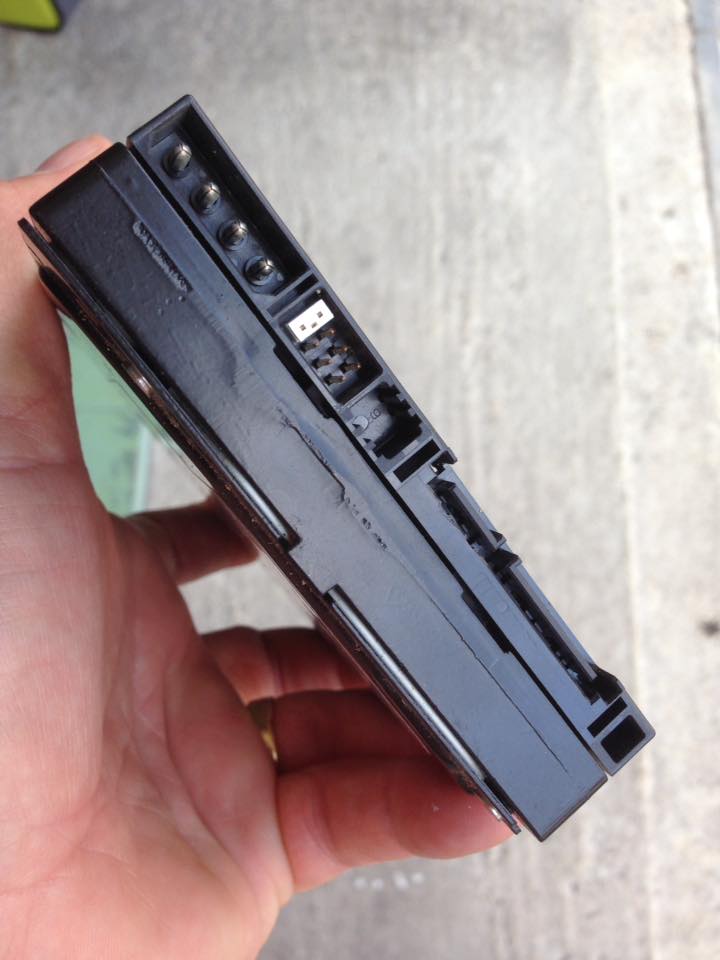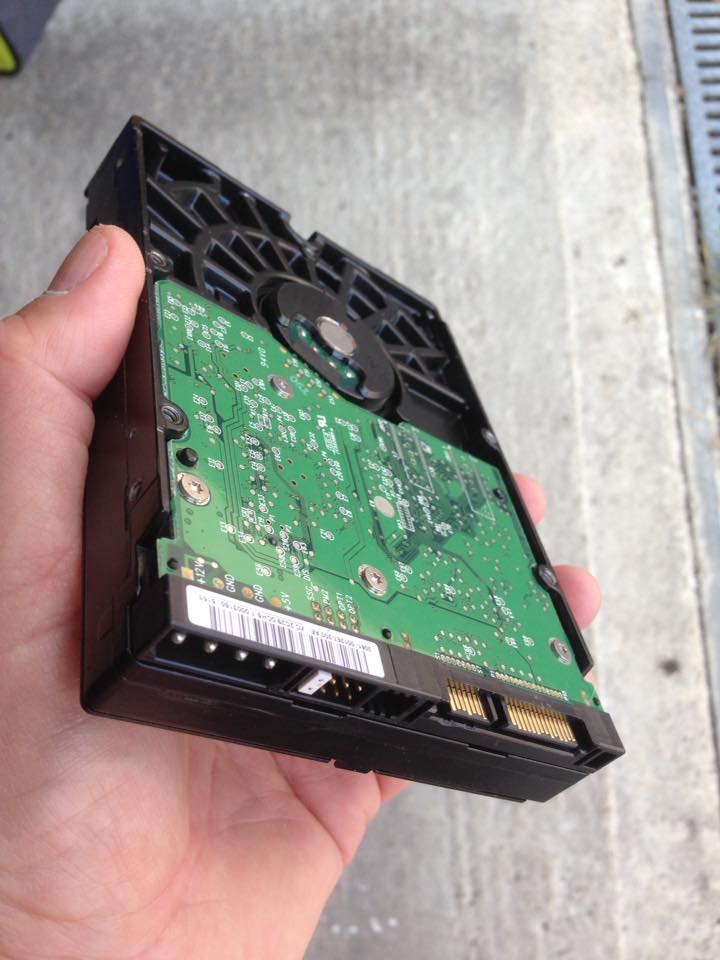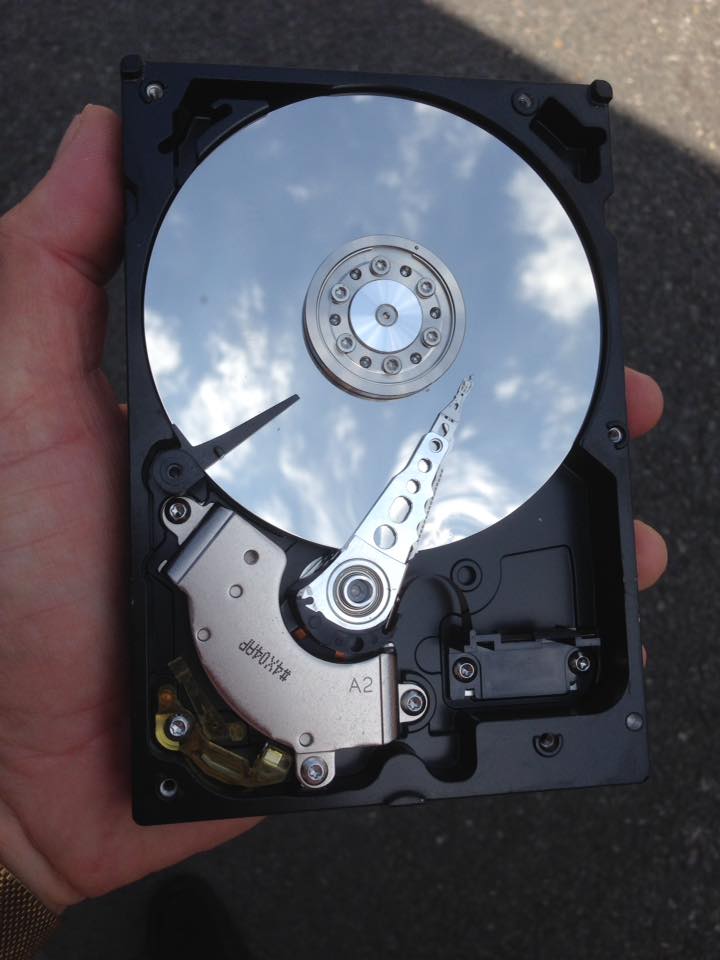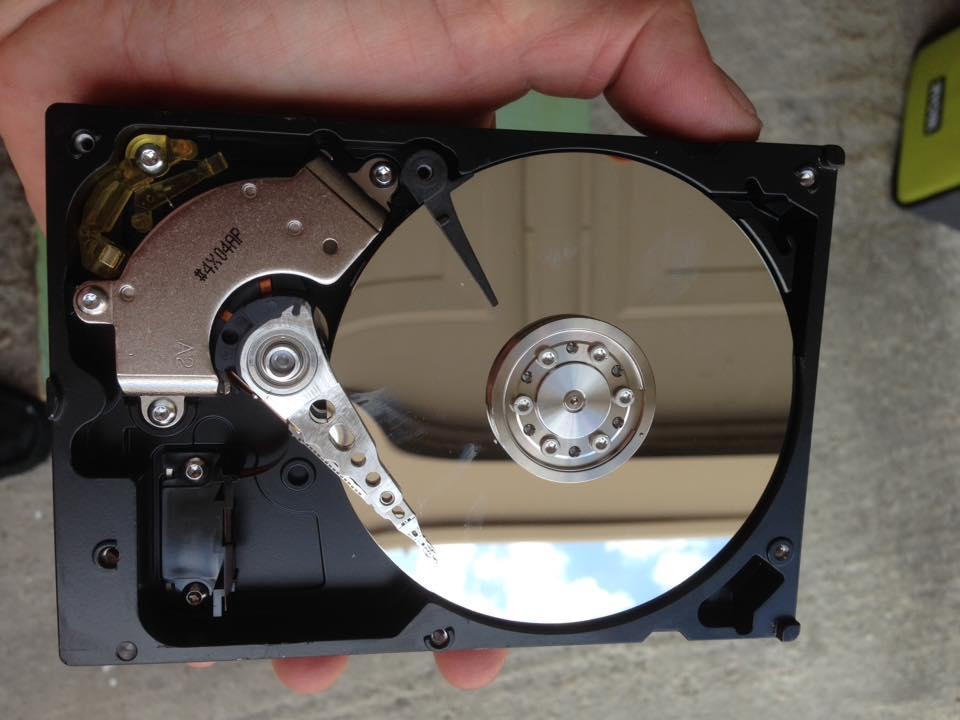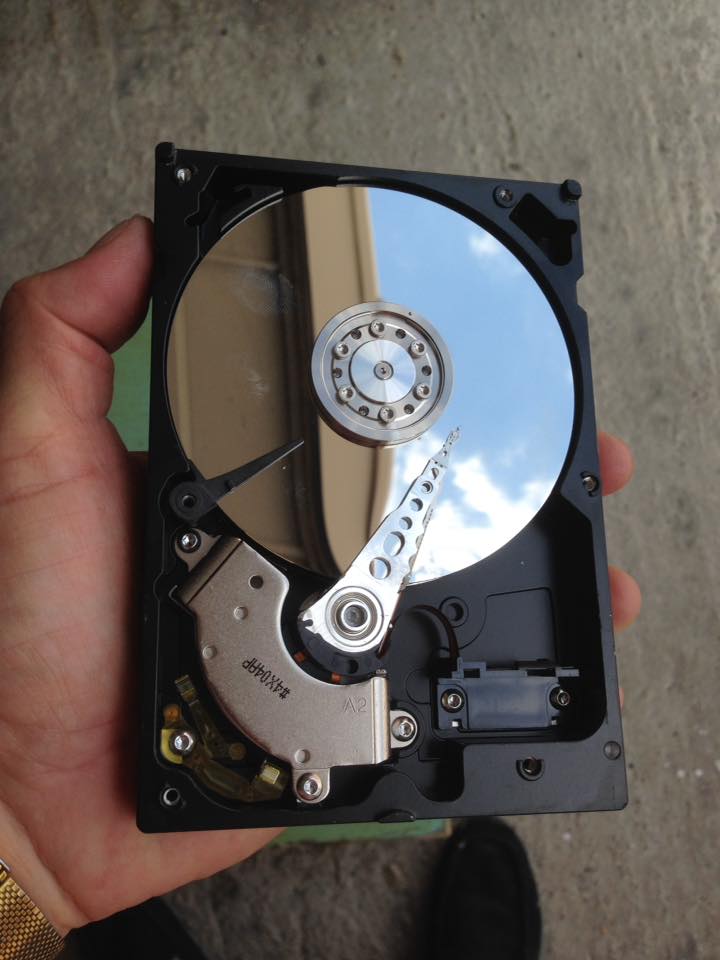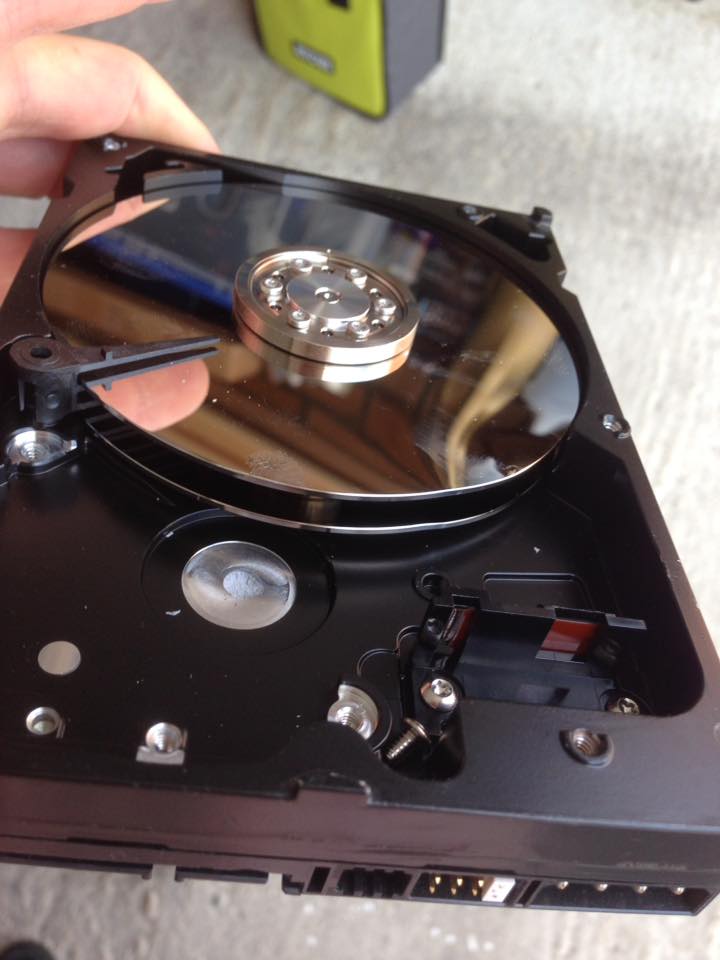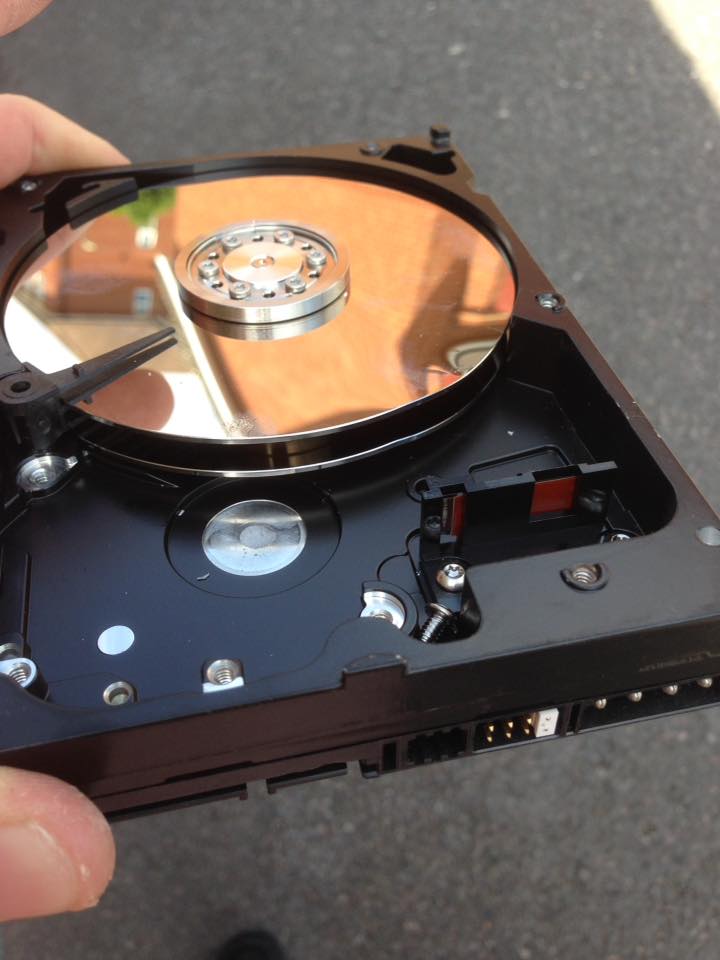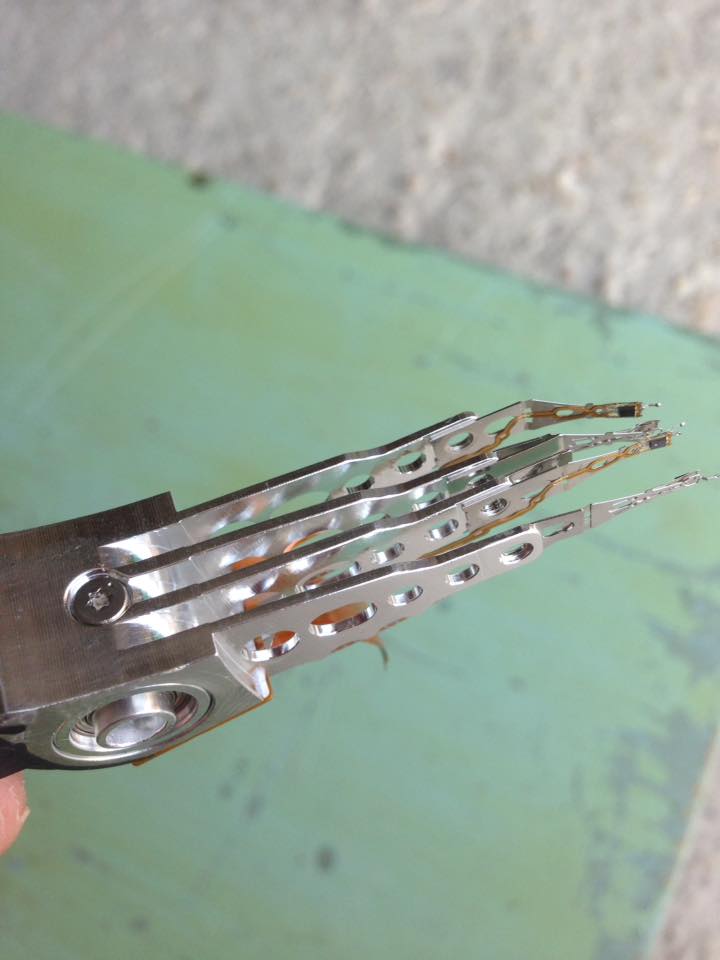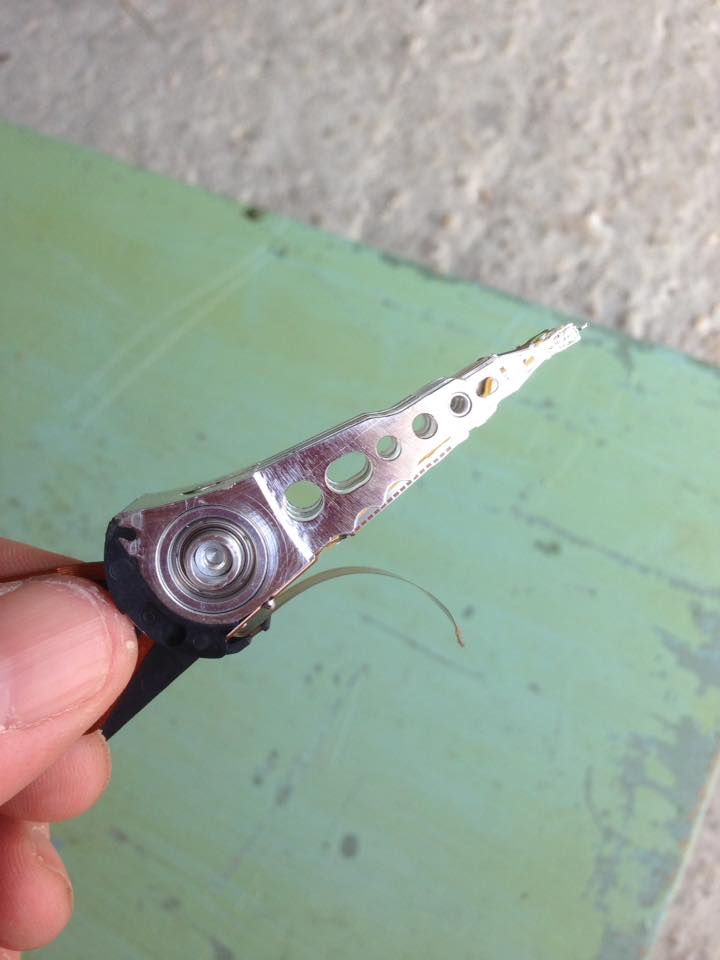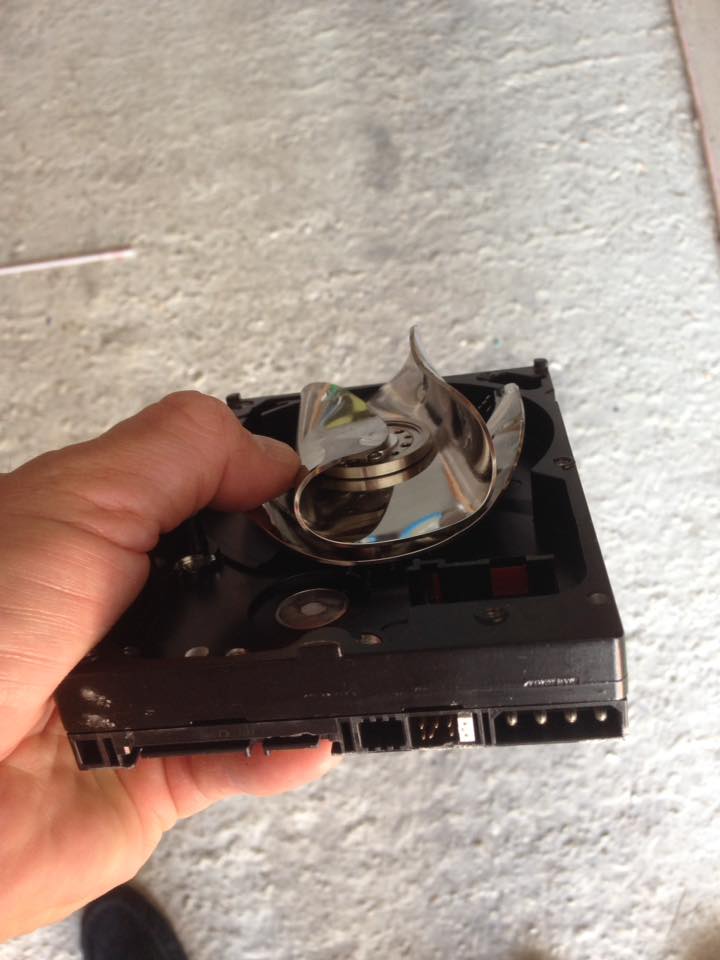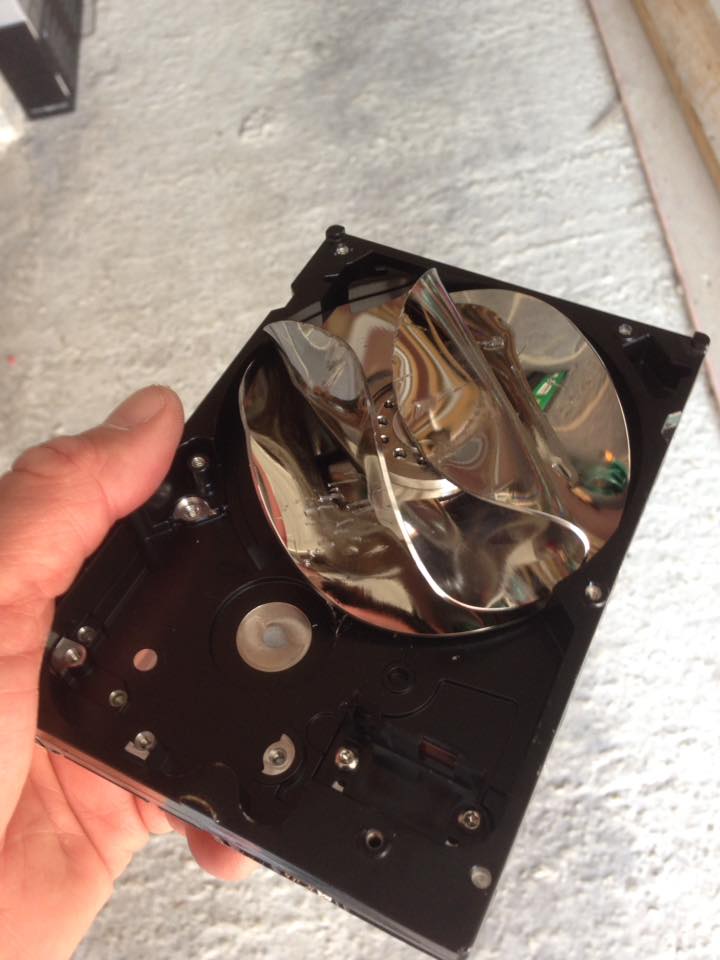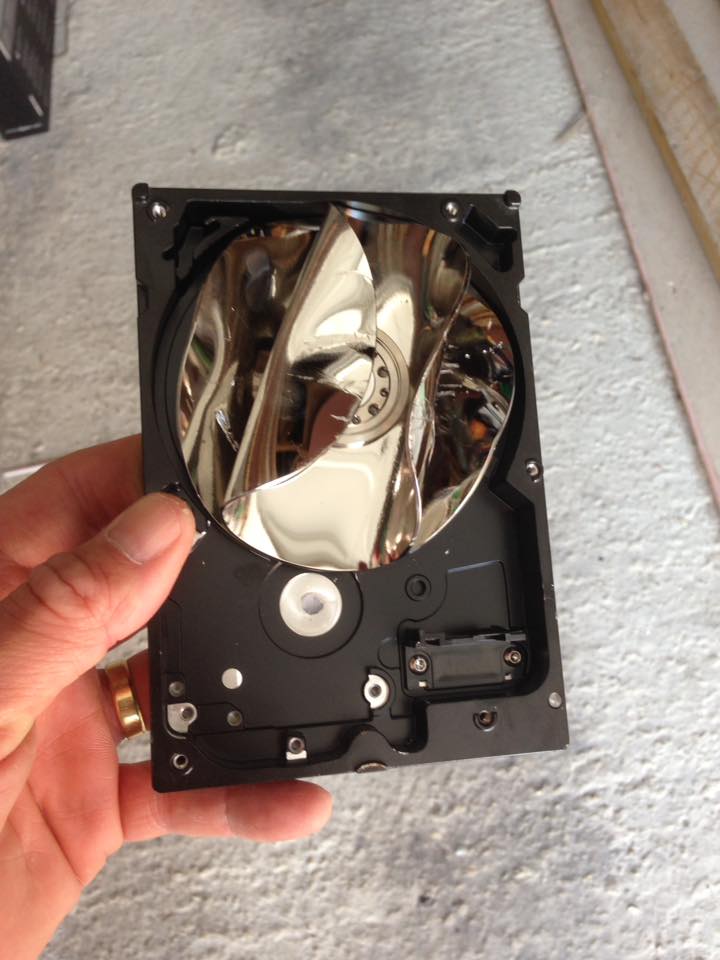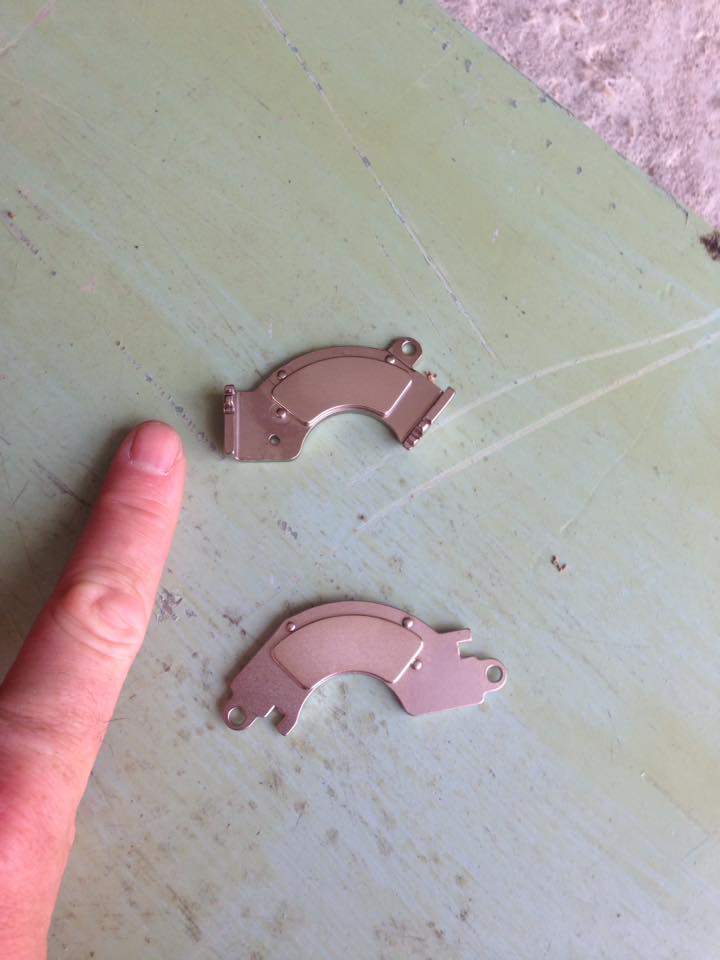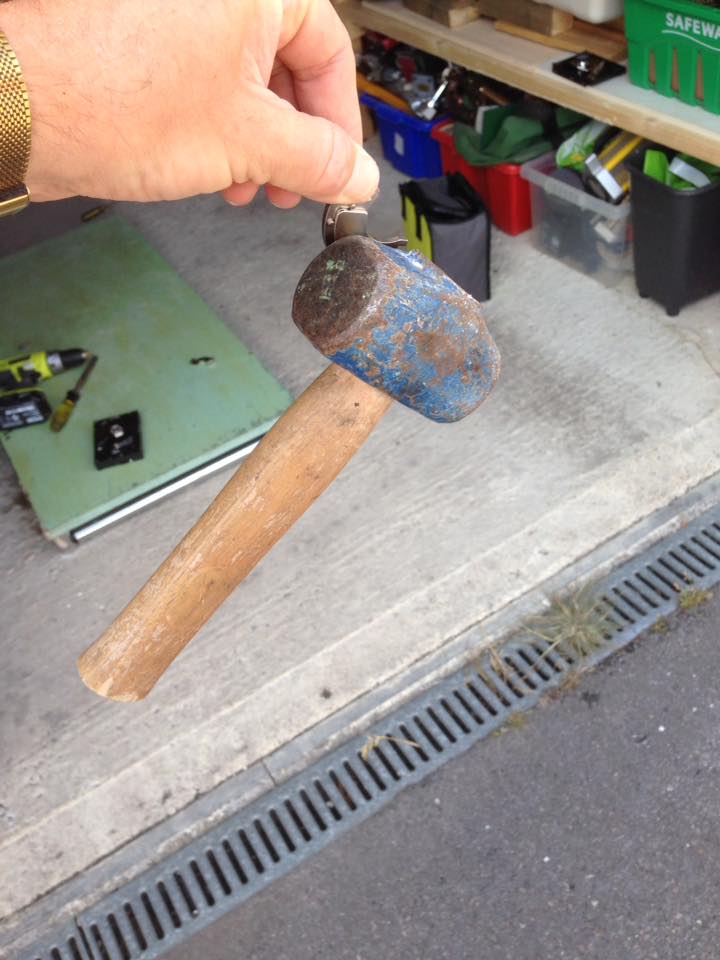Here you'll find various tips, tricks
& photos.
The following photos are of an actual hard drive from a desktop computer, this is what windows is installed on and also holds your data, documents, photos etc. They are simply smaller in a laptop. These (called sata) drives are quite fragile and when describing them I use the analogy of a record and needle, they work in a similar way.
Hover over some of the photos for more info
Tips for looking after your laptop - Avoid expensive repairs or having it written off.
Drinks! Always keep drinks away from your laptop, sadly I write off so many laptops due to drinks spilling into them.
Food, likewise crumbs and food debris can damage the laptop and stop the keyboard working.
Charging port, don't travel with the charger plugged in, one knock and it can break the port and charger connector.
Power cable, don't wind the cable round the charger itself (or the laptop) or make it so the cables are pulled tight from the adaptor block itself, this can break the cables.
Use a table / board / tray when using laptop. they have small feet to allow air to circulate, having it on your bed, lap, floor etc can cover the vents and make it get hot. (I can advise on laptop trays)
Keyboard tips
If like me you're right handed and while using the mouse pad on the laptop or a separate mouse i find my left hand dormant but i can work in conjunction to make your computing life a little quicker, sometimes works out quicker than doing these on the keyboard than with the mouse. Obviously this works for lefties too!
Open explorer
Click windows key and e
Copy
Control (ctrl) and c
Cut
Control (ctrl) and x
Paste
Control (ctrl) and v
Undo last command (can be used to go back multiple times)
Control (ctrl) and z
Switch between open apps / programs
Hold Alt button and press Tab
Switch between open tabs in a web browser
Hold control (ctrl) button and press Tab
Hope these are of some help, there are lots more, google them!
Passwords
We all hate passwords but sadly its a way of out digital life. Here's some advice.
Write them down and keep at home, rightly or wrongly we are never going to remember all those different complicated passwords so write them down in perhaps a book that is either hidden or tucked away.
You have a LOT more chance of it being stolen online than someone braking in to find a small black book of your passwords.
Some we use once and don't need for years, you'll never remember it.
Make them complicated.
Portugal2021 or Roger01 and ones similar to these are NOT a suitable password.
Scammers computers already know your email address and some of the sites you login into, Amazon, Facebook, ebay, your bank etc.
They have computers that can try your email address against every word in the dictionary in a matter of minutes, then every word again with 1 at the end, then a 2, etc...... they will simply do this 24hrs a day.
Once they have access it they change it and they then have access to many other thing you log into.
I see first hand the worry and hassle (not to mention costs) this can cause.
Use / make up a word than isn't a word, these aren't fantastic but gives you an idea of what to use. A mixture of letters in capitals and lower case, numbers and special keys.
Instead of Portugal2021 use P0r7u9aL@2£02&1
Obviously that's hard to remember, write it down and home and store it somewhere.
My browser has saved the passwords.
If you use chrome / Edge browser and its saved your password for such things as Amazon, ebay etc you can retrieve these to save or print or merely remind your self.
Go into your browser setting and search up passwords, click password manager, here you can see your saved passwords and what site they refer to, you can click the eye to view them or click the 3 dots and say export passwords, you can not export them as an excel document.
